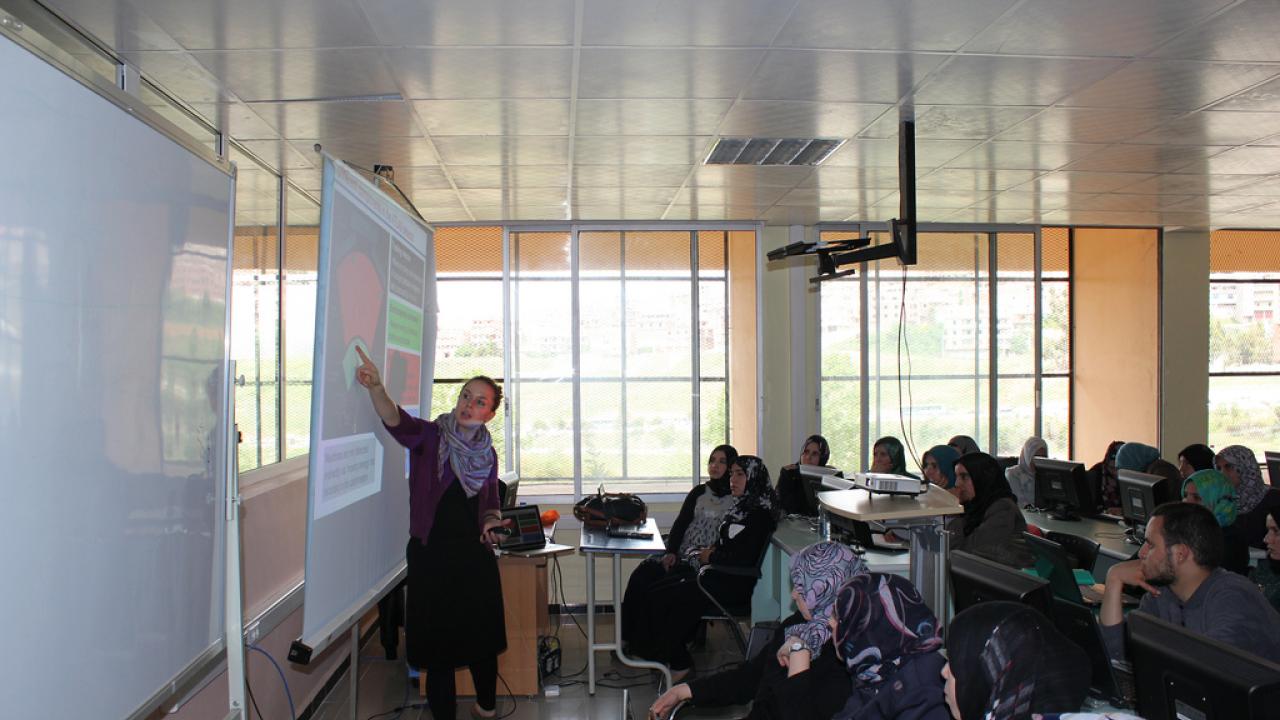
Thanks to a unique educational outreach programme conceived by ICTP postdoctoral fellows, young physicists in developing countries have caught a glimpse of the exciting science happening at CERN.
Established in 2012, Physics without Frontiers takes science on the road, bringing it to the far reaches of the developing world to inspire and engage young physics students. The organizers have spent significant time at CERN as part of the ATLAS experiment team that discovered the Higgs-like boson, and the classes they teach give students direct exposure to the experimental physics taking place at CERN's Large Hadron Collider (LHC).
For 2013, the destination was Algeria. The trip was organised by researchers from the ICTP/Udine ATLAS group and local Algerian scientists. Kate Shaw, a postdoctoral fellow with ICTP's High Energy, Cosmology and Astropartical Physics section, one of the creators of Physics without Frontiers, says that the masterclasses they conducted consisted of lectures and hands-on sessions using real LHC data, giving students excellent insight into the world of experimental physics. "We were very happy with the level of enthusiasm and participation shown by the students," says Shaw.
The team held masterclasses at three Algerian universities: Université des Sciences et de la Technologie d'Oran; Université de M'sila; and Constantine-I University. Students at M'sila and Oran participated in a virtual visit to the ATLAS control room at CERN. "This exposure is very important for Algerian students, because Algeria has a strong community doing theoretical physics, but work in experimental particle physics is almost absent in Algeria," says Rachik Soualah, an Algerian national and former ICTP diploma student, now a postdoctoral fellow at the University of Udine, Italy. "Algerian scientists are planning to be part of the ATLAS collaboration, and this masterclass is a great way to lay the foundation for the future of experimental physics in Algeria," adds Shaw.
"ICTP already has good contacts in Algeria: Amine B. Hammou and Amine Ahriche, both associates at ICTP, were part of the team and local organisers for the project," says Soualah. "And, it is great that we can use these contacts to build bridges," he adds. Shaw agrees. "One of ICTP's strengthsis that it works effectively with individuals to reach individuals rather than just working at an institutional level," she says.
This approach of targeting students at the grassroots level has generated a lot of positive feedback. Hammou says, "The project was organised for just the students, because generally people organise [high-level] workshops, conferences where students don't understand much."
Along with the positive feedback from students, another indication of the success of Physics without Frontiers is reflected by the fact that Mazuza Ghneimat, one of the students who participated in the Physics without Frontiers masterclass last year in Palestine, has been accepted into ICTP's Postgraduate Diploma Programme starting September 2013. The team hopes that the Physics without Frontiers will continue to encourage budding physicists to pursue research careers.
















